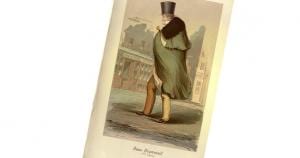 Luxury is fun on a holiday, but can be deadly in a lifetime, keeping us from knowing true love. Fasting sharpens our awareness of ideas and spiritual things.
Luxury is fun on a holiday, but can be deadly in a lifetime, keeping us from knowing true love. Fasting sharpens our awareness of ideas and spiritual things.
Successful people I have known often live relatively simple personal lives. They know that eating holiday food every day leaves nothing for a feast. This creates boredom, leaving aside any moral issues about waste or self-indulgence.
What is love? How can we find true love?*
The dilettante toys with wisdom, but wisdom requires marriage of minds!
A Brief Lesson on Love and Luxury
We are unlikely to find it in the decadence of luxury or so Plato suggests in Phaedrus. A brilliant student finds Socrates after spending the day in luxury in the house of Lysias. Like many self-indulgent parities, the day at the house of Lysias has included some verbal fencing, edutainment. The host has given a speech on love, one designed around his desires.
Phaedrus, a remarkably attractive young man, has escaped, but is still under the power of that speech. He walks outside the city and meets Socrates, a man usually found in the marketplace. Socrates has escaped any hint of luxury and invites Phaedrus to walk with him. They find a plane tree full of the singing cicadas and sit underneath. Socrates slowly, using discussion, frees Phaedrus from luxury.
Phaedrus has come from indulgence and is going no place. Socrates directs him to a love that takes us to the highest heaven and the Good. Simple nature, old stories, and good discussion sets Phaedrus frees. Socrates loves Phaedrus, but not as prize, an object, but as a fellow human being search for love. Socrates wishes what is best for Phaedrus and for himself while understanding that the easiest mistake is to confuse desire for love.
The longer they are away from the the indulgences the city, the more Socrates and Phaedrus find health and love. The problem is not civilization. Having the time for a discussion is the product of a sophisticated society. The danger is that the very wealth that can buy time for the pursuit of God and wisdom tempts us to luxury.
What is luxury?
Luxury is using the time hard work gains us on useless entertainment and endlessly fripperies. Phaedrus has heard a speech, but all this makes him wish to do is learn that speech and give it beautifully. He does not wish to know, but to memorize and repeat the speech that he thinks so fine. The speech itself is full of high sounding phrases that signify lust.
Where is love?
Love is missing in the speech of Lysias that Phaedrus thinks so beautiful. It is fat with words, but short on meaning. That is the nature of luxury: stuff without purpose, wasteful.
Why care?
We are in an age where luxuries are (relatively) easy for Americans. Video entertainment is easy to obtain, even poor Americans have access to more theater than Queen Victoria. We can listen all the time. Our children are, God save them, given mobile devices psychologically designed to sell entertainment. Meanwhile too many universities lay off full time faculty for faux education driven more by gaming than Socrates and Jesus.
Luxury enervates. Luxury looks to click count and not truth, wining and not honor.
The beloved, love, demands more than looking. Love demands consent, a relationship between the lover and his beloved.
Phaedrus suggests part of our cure comes from nature. Even in my urban neighborhood, we can find room to plant a garden, raise a chicken, find a tree to sit and hear the Houston cicadas. Nature can be severe, hurricanes come, but nature is also beautiful without luxury.
We must refuse the role of dilettante for that of the lover. We cannot hook up with wisdom. She refuses her consent to any who will not commit for eternity. Beware the credentialed cretin who confuses his cocktail safe chatter for knowledge. Instead, look for the lover of wisdom who will abide no lie, brook no compromise, for the good, truth, and beauty.
———————-
* As a young man I made every mistake here, God have mercy, but I have learned so much since then.












